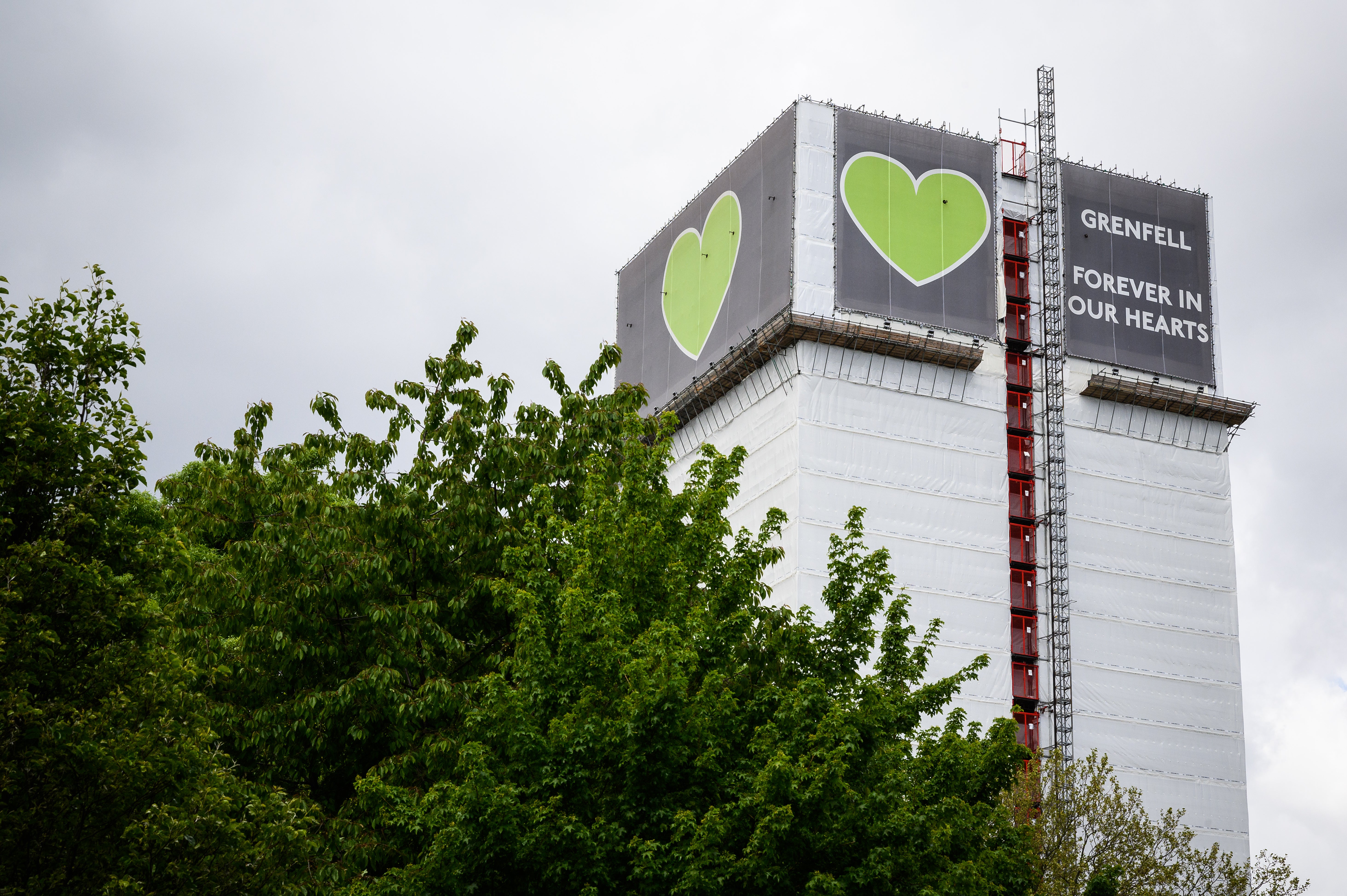Grenfell inquiry: Ex-council leader ‘desperately sorry’ for everyone involved in fire disaster
Nicholas Paget-Brown says a ‘systemic failure’ occurred

Your support helps us to tell the story
From reproductive rights to climate change to Big Tech, The Independent is on the ground when the story is developing. Whether it's investigating the financials of Elon Musk's pro-Trump PAC or producing our latest documentary, 'The A Word', which shines a light on the American women fighting for reproductive rights, we know how important it is to parse out the facts from the messaging.
At such a critical moment in US history, we need reporters on the ground. Your donation allows us to keep sending journalists to speak to both sides of the story.
The Independent is trusted by Americans across the entire political spectrum. And unlike many other quality news outlets, we choose not to lock Americans out of our reporting and analysis with paywalls. We believe quality journalism should be available to everyone, paid for by those who can afford it.
Your support makes all the difference.The former leader of the council responsible for Grenfell Tower has said he is “desperately sorry” for everyone who was involved in the fatal fire.
Nicholas Paget-Brown, who resigned within weeks of the blaze, told the public inquiry into the 2017 fire that he feels a "systemic failure" had occurred and that such a tragedy must never be allowed to happen again.
Mr Paget-Brown said: "I was very proud to be leader of Kensington and Chelsea.
"I am desperately sorry for everybody who was in the tower on the morning of June 14. I will never forget what I saw. It was utterly, utterly terrible.
"The memorial to those who lost their lives and lost everything and have had their lives ruined, must be that the work that this inquiry is doing to find out what really happened can never happen again - and that must be the memorial to those that lost their lives.
"And I am so sorry for all of them."
The fire at the 24-storey Grenfell Tower block in west London in June 2017 claimed 72 lives.
The inquiry has heard that Grenfell's cladding featured a polyethylene (PE) core sandwiched between aluminium composite material (ACM) panels.
The Reynobond ACM PE cladding panels made up part of the tower's external cladding system, which was combustible and found to be a key factor in the fire's rapid spread by acting as a source of fuel.
On whether the tragedy could be seen as a local failure as opposed to a systemic failure, Mr Paget-Brown told the hearing that "it seems to me from what I have heard and read that this is a systemic failure, this material is in widespread use everywhere".
He said he is now "very nervous" about high-rise buildings and suggested that a shift is needed in how they are run, as well as a reflection of their impact on residents who can find themselves feeling isolated.
Mr Paget-Brown, who previously told the inquiry panel that he recalled that Grenfell Tower had "quite a grim entrance", no outside balconies, and "wasn't a good piece of public realm", spoke of some things in hindsight that could have been done differently during his time as deputy leader or leader of the council.
He said the idea of things he could have done differently is something he has thought "an awful lot" about since 2017.
The former leader added: "I think I would be very nervous now of high-rise developments in general and refurbishments in particular. There are clearly a number of issues which are difficult or potentially difficult.
"I think high-rise buildings anyway, quite apart from the architecture, the design, the refurbishment, are not always the happiest places to live - you can be very lonely, very isolated, and there are all sorts of issues when you do live in a high-rise flat.
"I do not think necessarily they are the way forward for the future."
He now favours the idea of mansion blocks which do exist in a large part of Kensington and Chelsea as "a better model for future housing".
Mr Paget-Brown said he would also "think hard" about the phrase "arm's length management organisation" as it "is quite vague and open to different interpretations".
He said: "It seems to me to be the happy idea in the 1990s that you might devolve power hasn't really meant that.
"It really has meant that councils should be running housing directly and maybe that is something else that needed to change."
Lawyers for victims and their families at the inquiry have previously attacked the role of the Royal Borough of Kensington and Chelsea (RBKC), which owned the block and was the landlord of Grenfell Tower, and the Kensington and Chelsea Tenant Management Organisation (TMO), an arm's-length body which ran it and oversaw the refurbishment.
Additional reporting by PA
Join our commenting forum
Join thought-provoking conversations, follow other Independent readers and see their replies
Comments